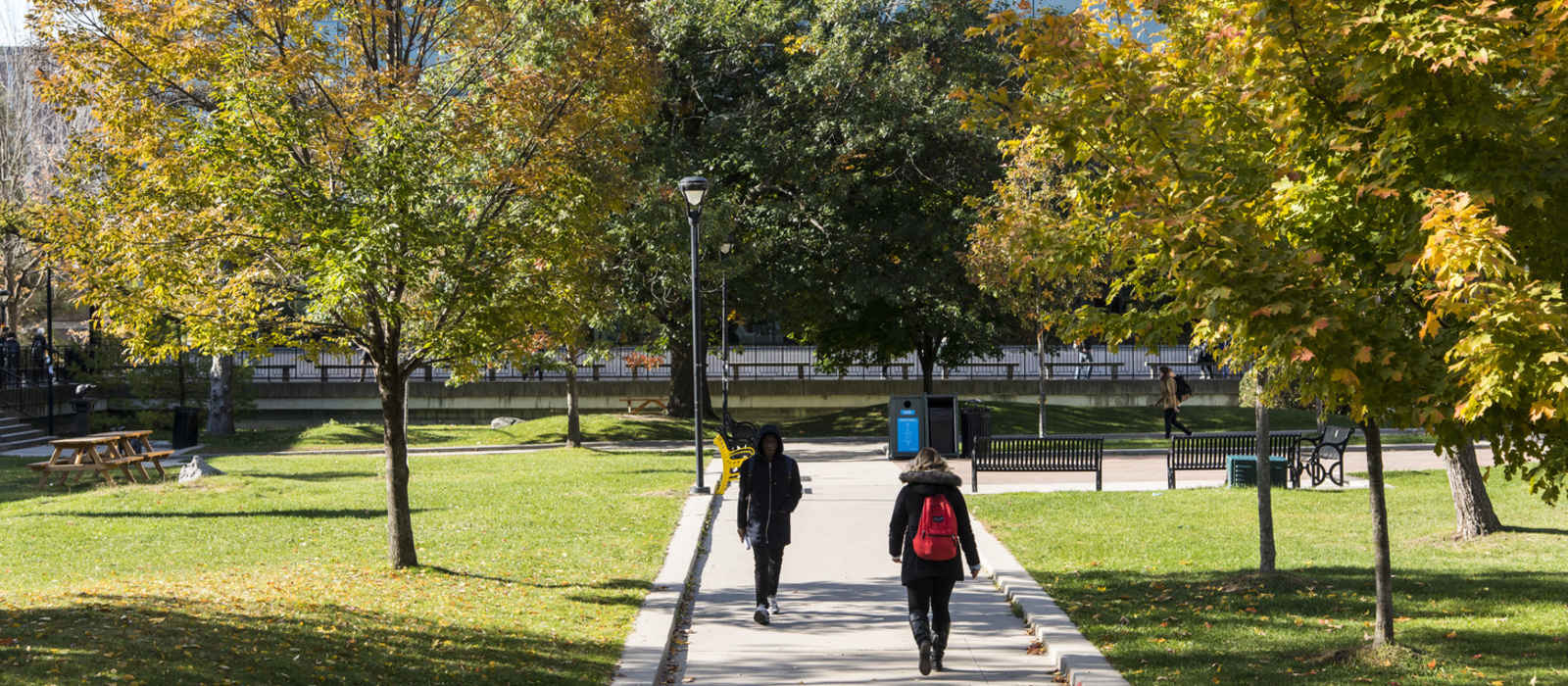Presentation Abstracts
Ways of evaluating the READi graduate accessibility training program
Jin Kang, Adrian Chan, Audrey Girouard
School of Information Technology and Computer Systems Engineering, Faculty of Engineering and Design
We will present how we are evaluating a graduate accessibility training program called Research and Education in Accessibility, Design, and Innovation (READi). READi aims to help students develop accessibility knowledge and skills. The flagship component of READi is the Action Team Project (ATP), where small groups of graduate students of interdisciplinary backgrounds work with community partners over 8 months and they provide tangible insights to community partners’ accessibility challenges. We will talk about the following: (1) READi’s five core program elements (i.e., Course, Workshop, Retreat, ATP, and Symposium), (2) our research to evaluate the impact of READi on graduate students and community partners—longitudinal survey to track students’ cognitive and affective learning outcomes, stakeholder interviews with community partners, and Retreat and Symposium feedback surveys—, (3) our preliminary findings on what our community partners valued about READi and their recommendations on improving the program, and lastly, (4) other creative means of program evaluation that involve community partners. Our objective is to share with audiences about standard program evaluation methods and the needs of community partners in a graduate training program.
Evaluating campus-community partnerships
Lara Badke
Office of the Vice-President (Students and Enrolment), Strategic Initiatives
Evaluation is a broad term that encompasses numerous components. An important question to ask in any evaluation strategy is what are you trying to evaluate: Student learning? Institutional effectiveness? Quality of the campus community partnership? Impact on the community? Evaluating students’ growth and development is often the initial lens through which evaluation takes place in higher education. But evaluating partnerships and our work with the community is crucial to determining the extent to which desired outcomes are being achieved. Given the importance to both higher education and society in understanding the benefits to students and communities through these engagements, this session will introduce you to key issues to consider in developing a comprehensive community partnership evaluation strategy.
Knowing what to measure and where to begin can be daunting. In this session you will develop a shared understanding of key terminology (differences between assessment, evaluation, measures, and benchmarks, for example), identify actions you can take to plan and implement a comprehensive evaluation strategy (six step evaluation cycle), and better understand challenges that may arise.
Of benefit to both faculty and staff who run community engagement programs, participants will leave the session with a greater understanding of evaluation practice and awareness of issues to consider when developing strategies toevaluate partnerships and engagement with the community.
Nurturing the Lifelong Learning Community: Using Evaluation for Innovation
Daphne Uras
Centre for Initiatives in Education, Faculty of Arts and Social Sciences
“LLeaP continues to amaze me. I’ve taken at least 3 dozen LLeaP lectures and almost always come away from the lectures totally satisfied, enlightened, entertained, stimulated.” For 21 years, the Lifelong Learning Program (LLeaP) has followed Carleton University’s tradition of engaging with the wider community and making education accessible. Formerly known as Learning in Retirement, LLeaP provides affordable non-credit educational programming to community members. The program is part of Carleton’s Centre for Initiatives in Education and welcomes adults of all ages. With up to 5000 registrations per year, outstanding positive feedback, and plans for further expansion and partnerships, LLeaP is important to Carleton’s relationship with the wider community. Through engagement with our audiences, we also raise awareness about many Carleton departments, and increase community participation in
events and research projects beyond our program. Evaluating our partnerships and work with our community is integral to our practice. The ongoing feedback we elicit from participants, lecturers, and administrative and student staff allows us to optimize the experience for all. During the pandemic, evaluation became even more important as we created an all-new registration process, a new online event format, and new channels of communication.
A strengths-based approach to grow people, teams, and communities: creating environments for meaningful conversations that just might go somewhere
Amanda Dobbie
Office of Quality Initiatives
Leadership in community engagement is deeply embedded in how the Office of Quality Initiatives identifies, fosters, and shares our knowledge to serve individuals and teams across Carleton. We understand the impact that collaboration and community engagement contribute to the holistic wellbeing of individuals and communities. Our aim is to move all members of the university community to consider, reflect, and act in sharing knowledge, serving our community, and striving for wellbeing. We have also actively engaged with external community partners on several fronts.
OQI takes a strengths-based approach to working with internal and external partners. This approach is key in fostering strong relationships, connections and possibilities which highlight the skills, experience, and resourcefulness of others. In this interactive session, we aim to highlight the impact of that approach and to showcase OQI as a resource for community engagement initiatives and as an experienced partner, who can share our knowledge and facilitate the sharing of knowledge within communities.
